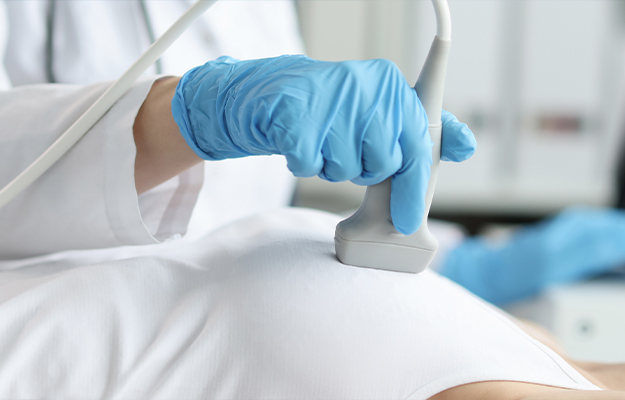Are you aware that there are 30 FDA-approved testosterone replacement therapies available for men, yet none specifically for women? The lack of research and medical interest leaves women with limited options for therapy.
The current landscape of testosterone replacement therapy (TRT) for women is mired in controversy. However, it’s essential to recognize the potential benefits, particularly for those exhibiting symptoms of androgen deficiency. The journey to understanding and accessing testosterone therapy for women is complex, but it’s a path worth exploring for those who could significantly improve their quality of life.
Stay informed and proactive in exploring how testosterone therapy could offer a new horizon for health optimization.
Can Testosterone Therapy Optimize Your Health and Well-Being? Understanding Female Hormone Imbalance
Testosterone isn’t just a male hormone; it’s a key player in women’s health too. As we journey through life, our testosterone levels naturally taper off, subtly influencing our vitality and wellness. Here’s some uplifting news: testosterone therapy might just be the ticket to rejuvenating your zest for life.
Testosterone is produced in several body parts, including the ovaries and adrenal glands. A decline in production can set off a domino effect, underscoring the need for hormonal harmony for peak health.
Navigating the signs of this hormonal shift can be tricky, as they often masquerade as other health concerns. To steer clear of misdiagnosis and tap into potential life-enhancing treatments, keep an eye out for these symptoms:
- A dip in libido and sexual fulfillment
- Persistent fatigue and a noticeable drop in energy
- Muscle strength waning
- Challenges in arousal and reaching orgasm
- Shifts in mood, such as increased irritability or feelings of depression
A survey in 2009 found that 4 million prescriptions were written for women to treat sexual dysfunction due to hormone deficiency. Many more were given for menopausal symptoms and other conditions caused by hormonal imbalance.
The journey to pinpoint androgen deficiency in women is still on its path to refinement. While there’s no one-size-fits-all approach to diagnosis, some healthcare providers monitor testosterone levels to spot imbalances. Despite the current research and public dialogue being limited, there’s a whole realm of knowledge waiting to be uncovered to empower women’s health further.
Types of TRT Available for Women
There are several ways to deliver testosterone replacement therapy (TRT) to women:
- Transdermal: Creams, gels, or patches applied to the skin. This is a common method, but absorption can vary, and levels may fluctuate.
- Oral: Taken by mouth. This is less common due to potential liver strain and unpredictable hormone spikes.
- Intramuscular: Injections deliver a rapid dose, but levels can also fluctuate significantly.
- Subcutaneous Pellet Implant: Tiny pellets are inserted under the skin, releasing testosterone steadily over several months.
While transdermal methods are popular due to ease of use, research suggests they may lead to fluctuating hormone levels and potentially higher side effects.
Subcutaneous pellet implants, on the other hand, seem to offer a more steady release of testosterone, potentially minimizing side effects and improving patient satisfaction (based on a 7-year study with high continuation rates). However, more research comparing different routes directly is needed.
Ultimately, the best route depends on individual needs and should be discussed with a doctor. When navigating hormone replacement clinics, be sure to stick to a doctor who is able to create a personalized health care plan fine tuned to your needs and health and wellness goals.
Your doctor should also be able to discuss the pros and cons of testosterone replacement therapy, and together, decide whether it’s the best treatment for you.
Debunking Common Myths About Female Testosterone Replacement
Myth: TRT Causes Hair Loss
Testosterone replacement therapy (TRT) and hair loss are often talked about together. Some people think that because men have more hair loss and more testosterone, the two are connected. But, studies show that hair loss happens when testosterone levels go down, not just because of the testosterone itself.
Hair loss can be complicated and is mostly due to genetics. This means if your family has a history of losing hair, you might too, with a chance as high as 80%. Being overweight or having diabetes can also make hair loss more likely. This is because of something called dihydrotestosterone (DHT), which comes from testosterone and can make it hard for hair to grow.
Being overweight or having diabetes can also make more of the enzyme that changes testosterone into DHT, leading to more hair loss.
Research finds that only some women lose hair when their testosterone drops. But many women who use TRT, especially with a method called subcutaneous implants, see their hair grow back. If hair doesn’t come back, it might be because of other health issues like thyroid problems, not having enough iron, or being overweight.
Myth: TRT Causes Masculinization
Contrary to common belief, high testosterone levels are not just a male trait, nor do they typically cause masculinization in women.
Research indicates that masculinizing effects, such as voice deepening or increased aggression, only occur with extremely high testosterone doses over long periods. Women undergoing testosterone replacement therapy (TRT) are unlikely to experience these changes.
Instead, TRT can have positive effects on mental health, particularly for women dealing with depression.
A study involving 34 premenopausal women revealed that a 10 mg dose of testosterone cream significantly improved mood. Women seeking TRT have options like transdermal or subcutaneous testosterone, which offer controlled dosing and effective absorption, minimizing the risk of excessive dosage.

Myth: TRT Increases Heart or Liver Disease Risk
TRT and Heart Disease
It’s not solely high testosterone levels that are linked to heart disease, but rather the imbalance between testosterone and estrogen.
An analysis of data involving over 2,800 women found that this hormonal imbalance could heighten the risk of cardiovascular disease, serving as a reliable indicator for heart health.
Testosterone replacement therapy (TRT) is designed to optimize hormone levels, striving for a balance between testosterone and estrogen similar to that found in healthy women. Therefore, maintaining this balance through TRT could potentially reduce the risk of heart disease.
TRT and Liver Disease
Oral testosterone can strain the liver because it undergoes a process called hepatic first-pass metabolism, where the liver processes the hormone before it circulates in the body. This processing can potentially harm the liver, with studies linking oral testosterone to abnormal liver function and tumor growth.
However, oral testosterone is now less commonly prescribed due to safer alternatives like transdermal delivery.
Transdermal testosterone, applied to the skin, bypasses the liver, reducing the risk of liver damage. Research supports that this method avoids the negative hepatic first-pass effects and is less likely to cause liver toxicity.
Myth: TRT Increases Breast Cancer Risk

Many women worry about whether taking testosterone as part of hormone replacement therapy (TRT) could lead to breast cancer. This concern comes from the idea that testosterone can turn into estrogen in the breasts, which might cause the breast cells to grow more and possibly lead to cancer.
But the good news from research is that women using TRT, especially through skin patches, don’t show a higher risk for breast cancer.
Studies looked at breast density (which can be a sign of cancer risk) in women using TRT and found no big difference compared to women who didn’t use TRT. Also, there isn’t a strong link between using testosterone and getting breast cancer.
In fact, some studies suggest testosterone could help protect against breast cancer. It might stop the growth of breast cells that estrogen can cause, which could help prevent cancer from starting or growing. So, taking testosterone might actually help lower the risk of breast cancer, not increase it.
Potential Side Effects of TRT
TRT May Cause Mild Acne
Skin changes, particularly acne, can emerge as a side effect of testosterone replacement therapy (TRT). This is often due to the increased testosterone levels, with acne being a frequently observed side effect in TRT cases.
A 2019 study highlighted that elevated androgen levels in individuals undergoing testosterone therapy correlate with a higher incidence of acne. However, it’s reassuring to know that severe acne cases are relatively rare in TRT contexts. Starting with a low dose of TRT and incrementally increasing it may help mitigate the risk of acne development.
For those with existing severe acne, TRT could worsen the condition and is generally advised against in such circumstances.
TRT May Increase Facial Hair
Testosterone therapy, even at low doses or over a short period, may lead to hirsutism, which results in unwanted hair growth on the face and neck. However, this condition can be managed.
Medications like spironolactone, though not officially approved for skin conditions, are commonly used to treat acne and hirsutism effectively. Alternatively, laser hair removal, an FDA-approved method, offers a solution by targeting and inhibiting hair follicles with laser light.
It’s important to note that side effects from testosterone replacement therapy (TRT) can often be reversed by adjusting the dosage. However, as the therapeutic benefits of TRT are dose-dependent, many women opt to address side effects through treatment rather than reducing their testosterone dose.

TRT Is More Effective if Initiated Early
Women often turn to testosterone replacement therapy (TRT) during menopause, seeking relief from symptoms like diminished libido, mood fluctuations, and weight gain. Starting TRT sooner rather than later can lead to better outcomes.
The North American Menopause Society (NAMS) advises that hormone therapy is most effective and carries fewer safety concerns when started between the ages of 50 and 59 or within 10 years of menopause onset. Beyond 60 years or 10 years post-menopause, the likelihood of side effects increases.
This timing is crucial because hormone levels, particularly testosterone, drop significantly after menopause, often falling to less than half of pre-menopausal levels. A decade post-menopause, testosterone levels can plummet nearly to zero. Initiating hormone therapy at this stage may be less beneficial and potentially adverse.
Yunique Medical: Unleashing Your Health’s Full Potential
At Yunique Medical, we’re more than just a health provider; we’re your partner in the journey to unmatched vitality and longevity.
Leveraging cutting-edge medical technology and the latest scientific breakthroughs, we’re dedicated to transforming your well-being. Our expertise spans from hormone balancing to cellular rejuvenation, crafting tailor-made health plans that propel you to your best health ever, regardless of age. Join us to unlock a new era of wellness, where your health’s potential is limitless.
By choosing Yunique Medical, you’re not just selecting a service provider—you’re choosing a partner dedicated to enhancing your life’s quality at every level.
We invite you to take the first step towards a brighter, more vibrant future. Reach out to us today to schedule your initial consultation for hormone replacement therapy in Ocala, Port Orange, or The Villages. Together, we will explore the full spectrum of possibilities that our comprehensive care offers, ensuring your journey is not only transformative but truly life-enhancing.
Let Yunique Medical be the cornerstone of your journey to a healthier, more youthful you, where your wellness dreams become our shared reality.

